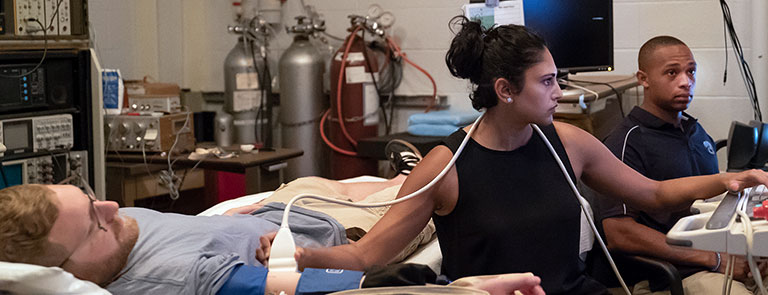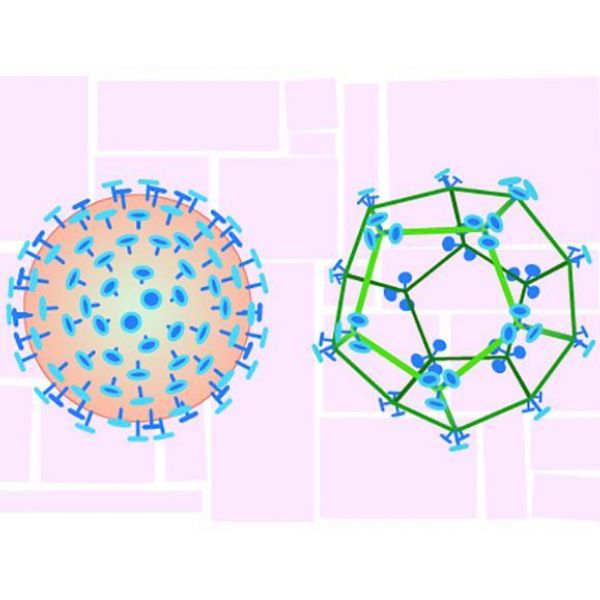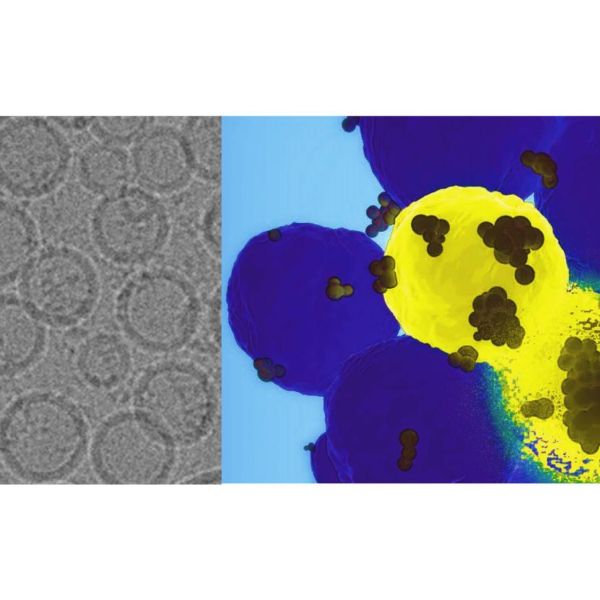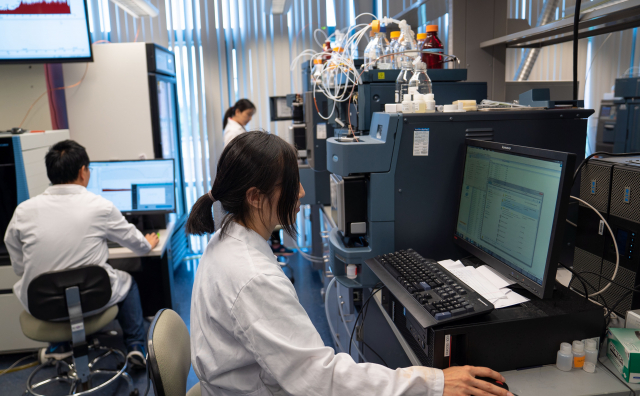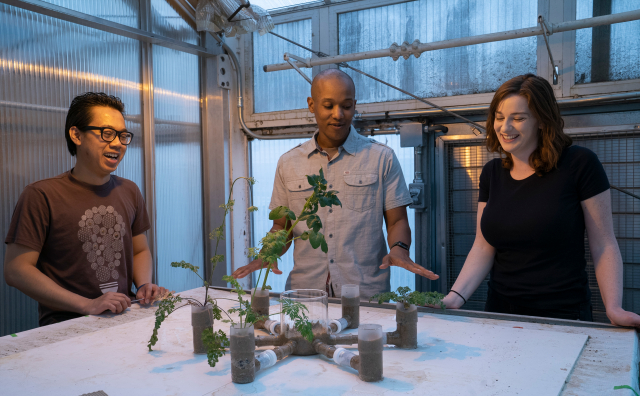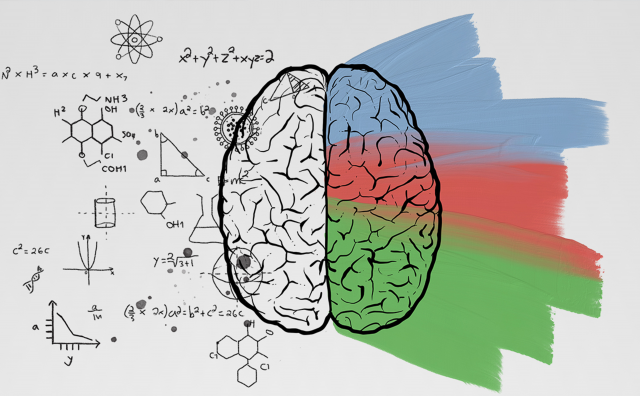Featured Stories
News

May 06, 2024
Five faculty members honored with Evan Pugh University Professorships
Five Penn State professors—including Huck-affiliated faculty members Reka Albert, Vijaykrishnan Narayanan, and Clive Randall—have been named Evan Pugh University Professors, an elite and prestigious distinction conferred by the University on only 79 faculty members since the establishment of the designation in 1960.
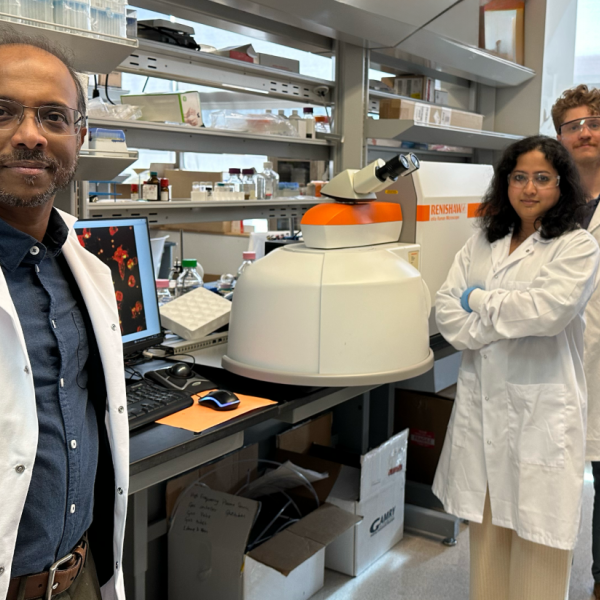
May 03, 2024
‘Better than graphene’ material development may improve implantable technology
Borophene, the atomically thin version of boron first synthesized in 2015, is more conductive, thinner, lighter, stronger and more flexible than graphene, the 2D version of carbon. Now, researchers at Penn State have made the material potentially more useful by imparting chirality — or handedness — on it, which could make for advanced sensors and implantable medical devices.
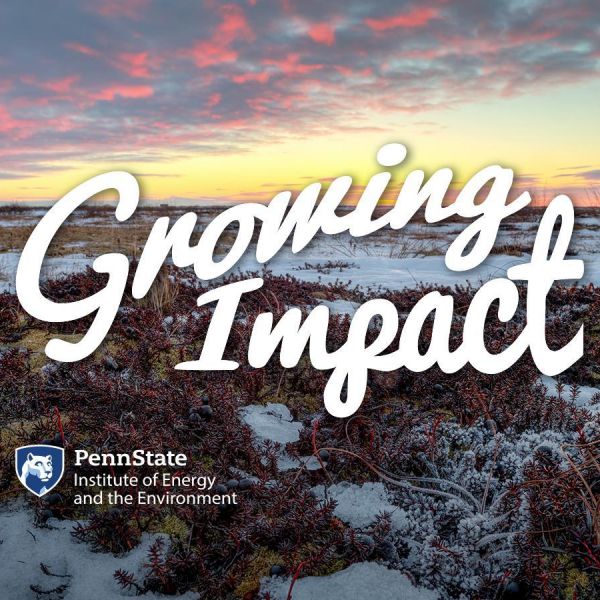
May 02, 2024
'Growing Impact' podcast explores a thawing Arctic and its impacts
The latest episode of Growing Impact discusses how thawing Arctic permafrost is affecting rivers and communities in the region. With temperatures rising globally due to climate change, landscapes in the Arctic are evolving.
News

May 06, 2024
Five faculty members honored with Evan Pugh University Professorships
Five Penn State professors—including Huck-affiliated faculty members Reka Albert, Vijaykrishnan Narayanan, and Clive Randall—have been named Evan Pugh University Professors, an elite and prestigious distinction conferred by the University on only 79 faculty members since the establishment of the designation in 1960.

May 03, 2024
‘Better than graphene’ material development may improve implantable technology
Borophene, the atomically thin version of boron first synthesized in 2015, is more conductive, thinner, lighter, stronger and more flexible than graphene, the 2D version of carbon. Now, researchers at Penn State have made the material potentially more useful by imparting chirality — or handedness — on it, which could make for advanced sensors and implantable medical devices.

May 02, 2024
'Growing Impact' podcast explores a thawing Arctic and its impacts
The latest episode of Growing Impact discusses how thawing Arctic permafrost is affecting rivers and communities in the region. With temperatures rising globally due to climate change, landscapes in the Arctic are evolving.
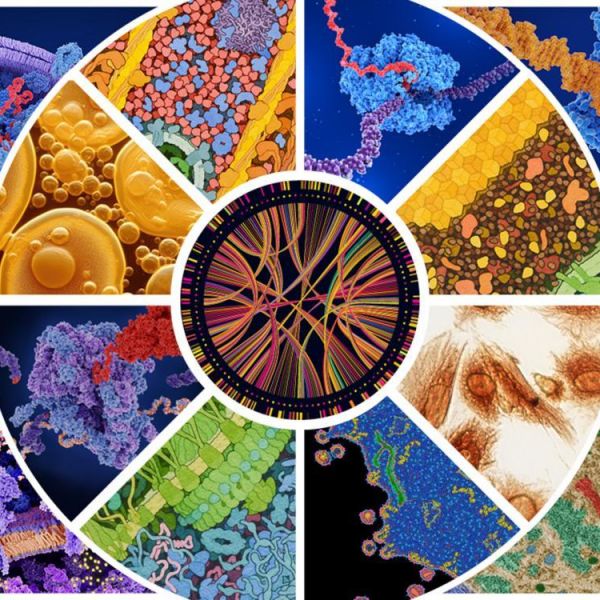
Apr 25, 2024
$20M NSF grant to support center to study how complex biological processes arise
A $20 million grant from the U.S. National Science Foundation (NSF) will support the establishment and operation of the National Synthesis Center for Emergence in the Molecular and Cellular Sciences (NCEMS) at Penn State.

